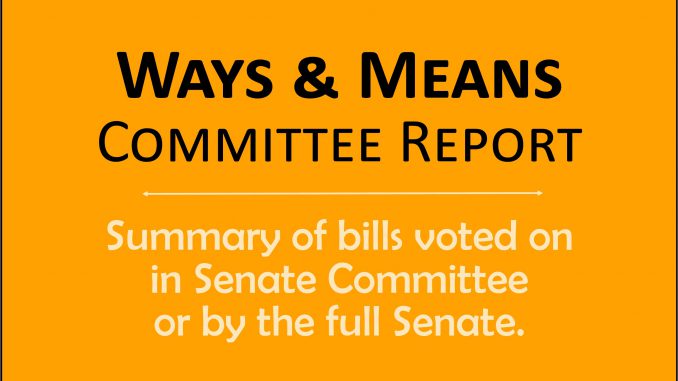
On this page
FLOOR ACTION:
HF 418 – Department of Revenue property tax proposal
HF 418 is a proposal from the Department of Revenue that would eliminate the current multiresidential classification for property assessment purposes and place those properties under the residential property tax classification. Eliminating the multiresidential property classification will reduce the need for special assessments and equalization orders for that class of property. Multiresidential property represents a very small portion of the assessed value statewide. This makes sales comparisons difficult because there are very few similar sales within a time period. Many counties also have very few properties in that class, which also causes issues under the equalization process. Moving these properties under the residential classification will simplify the process for local assessors and also even out property values for these properties under the equalization process. The small number of multiresidential properties sold caused some initial equalization orders to be sent to counties with 50% to 100% increases in assessed value based on market value analyses.
The multiresidential classification was created as part of the property tax reform bill in 2013 to phase out the tax differential on apartments and other residential properties that had been classified as commercial property. The 2013 legislation phased down the taxable value of multiresidential property until it would match the residential rollback rate.
The Senate adopted an amendment on the floor to address issues that the removal of the multiresidential property classification would have had on self-supporting municipal districts (SSMIDs). These changes ensure that the removal of the multiresidential property classification will not negatively impact the operation or financing of these districts.
[2/23: 48-0 (Absent: Nunn, Shipley)]
SF 367 – Fixes for Court Debt Bill
SF 367 corrects errors and unintended language that was included in SF 457, a criminal surcharge and court debt bill enacted in 2020.
SF 367 does the following:
- Allows the Department of Revenue (DOR) to retain 15% of what an offender owes to cover costs of administration. Last year’s bill allowed DOR to add and collect an additional 15% above an offender’s court debt amount.
- Clarifies that a consumer credit transaction does not include goods, services, or any other benefits provided by or on behalf of the state or a state agency.
- Clarifies the definition of “court debt” to include restitution and other debt paid to or collected by the clerks.
- Clarifies that the Department of Revenue and county attorneys who participate in debt collection do not keep any surcharges directly appropriated for specific purposes, including pecuniary damages, victim compensation funds, crime services surcharge, human trafficking victim surcharge, domestic and sexual abuse crimes surcharge, agricultural theft surcharge or sex offender civil penalties.
- Allows DOR to “charge off” active collection of debt if:
- The person owing the court debt is deceased, and there are no assets available to pay the court debt.
- The person owing the court debt cannot be located, and it is not possible to locate them.
- Certain court debt cannot be “charged off” until 65 years after imposition, e.g., pecuniary damages.
- Pending enactment of this legislation, the bill sets a date of August 2, 2021, for rescission of the DOR rule that adds on an extra 15% to the court debt owed by the defendant.
- Clarifies that an appellate court cannot review or modify a court order regarding an offender’s ability to pay unless the offender has first requested and received a rehearing with the district court while still serving their sentence.
[2/23: 48-0 (Absent: Nunn, Shipley)]
